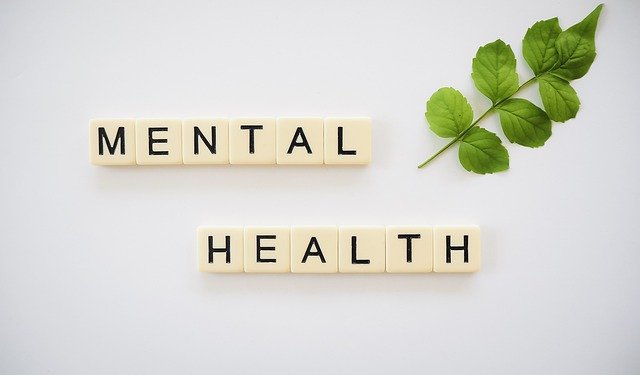Mental health awareness is essential for understanding and addressing the psychological and emotional well-being of individuals in our society. With mental health disorders becoming increasingly prevalent, it’s more important than ever to raise awareness and promote a culture of open dialogue. Fostering mental health awareness can help reduce the stigma surrounding mental illnesses and encourage individuals to seek the help they need. By increasing awareness, we create an environment where people feel supported and empowered to prioritize their mental well-being.
The Importance of Mental Health Awareness
Mental health awareness plays a crucial role in helping individuals recognize the signs and symptoms of mental health issues. Often, people may struggle silently due to the stigma associated with mental illness Starsinstereomusic.com/, but increased awareness can encourage open discussions and provide resources for support. By understanding mental health better, society can move toward reducing negative stereotypes and encouraging empathy for those affected. Mental health awareness is about breaking down the barriers that prevent individuals from seeking treatment and offering them a path to recovery and improved well-being.
The Impact of Mental Health Awareness on Society
When we talk about mental health awareness, we are talking about the broader impact on society. By raising awareness, we can foster a more compassionate and supportive community where people feel safe sharing their struggles. This shift in mindset is vital for creating an environment where individuals do not feel isolated or ashamed due to their mental health challenges. Additionally, mental health awareness can lead to increased funding for mental health services, better policies, and the development of programs that directly benefit those who need help. The more we understand and talk about mental health, the more society can support those who face these challenges.
Breaking the Stigma Through Mental Health Awareness
One of the biggest barriers to addressing mental health issues is the stigma that surrounds it. Many individuals who experience mental health challenges may feel ashamed or afraid to seek help due to societal judgment. Mental health awareness is key to dismantling this stigma and fostering an environment where mental health is viewed with the same seriousness and understanding as physical health. Through education and awareness campaigns, we can challenge negative stereotypes and encourage a more accepting view of mental health issues. By raising awareness, we can promote a culture where people are not afraid to seek help and where seeking support is seen as a sign of strength, not weakness.
Mental Health Awareness in Schools and Workplaces
Mental health awareness in schools and workplaces is essential for creating supportive environments where individuals can thrive. In schools, it’s important for educators and students to be educated on mental health topics so that they can recognize when someone may need help and provide the appropriate support. Mental health awareness can lead to the implementation of programs that teach coping strategies, stress management, and emotional regulation. Similarly, in the workplace, promoting mental health awareness can reduce stress and improve overall productivity. It also encourages employees to seek assistance when needed, creating a healthier and more balanced work environment. Both schools and workplaces play a critical role in spreading mental health awareness and ensuring that individuals receive the support they need.
The Role of Social Media in Mental Health Awareness
In today’s digital age, social media plays a significant role in spreading mental health awareness. Platforms such as Instagram, Twitter, and Facebook have become spaces where individuals can share their personal experiences, seek support, and find resources to help manage their mental well-being. These platforms also serve as tools for organizations and advocates to spread mental health messages to a broad audience. While social media can have its drawbacks, such as the potential for cyberbullying or comparison, it can also be a powerful tool for raising awareness and fostering a sense of community around mental health. Through social media, we can connect people from diverse backgrounds and share information that educates and empowers.
Early Intervention and Mental Health Awareness
Mental health awareness is critical for encouraging early intervention. Many mental health issues can be more effectively managed when they are addressed early on. By recognizing the signs and symptoms of mental health conditions like depression, anxiety, or PTSD, individuals can seek professional help before these issues escalate. Mental health awareness campaigns that promote the importance of early intervention can lead to better outcomes for those affected. Raising awareness about the availability of treatment options, therapy, and counseling can make it easier for individuals to take that crucial first step toward improving their mental health.
Mental Health Awareness and Access to Resources
Mental health awareness also plays a vital role in improving access to mental health resources. When people are more informed about mental health and its effects, they are better equipped to identify available resources, such as therapists, hotlines, and support groups. By raising awareness, we can direct individuals toward these resources, ensuring they receive the help they need to manage their mental health. Furthermore, public awareness campaigns can advocate for better funding for mental health services, which is essential for ensuring that everyone has access to the care and support they need, regardless of their background or location.
Mental Health Awareness and Personal Empowerment
On a personal level, mental health awareness can be incredibly empowering. When individuals learn about mental health and understand their emotions, they are better equipped to manage their own well-being. This knowledge encourages people to take proactive steps in maintaining their mental health, whether through self-care practices, therapy, or mindfulness. Moreover, mental health awareness can help individuals identify harmful thought patterns or behaviors and take corrective actions before these issues negatively affect their lives. By educating oneself on mental health, people can feel more in control of their own well-being and be better prepared to face challenges as they arise.
The Future of Mental Health Awareness
As awareness of mental health continues to grow, it is crucial that society keeps pushing for positive change. The future of mental health awareness lies in continued education, de-stigmatization, and providing greater access to mental health resources for all. As conversations around mental health become more open and inclusive, more individuals will feel empowered to seek help without fear of judgment. There is still much work to be done, but the progress made in raising mental health awareness has already begun to create a significant impact. With continued advocacy, we can work toward a future where mental health is a priority and everyone has the tools and support they need to live healthy, fulfilling lives.




